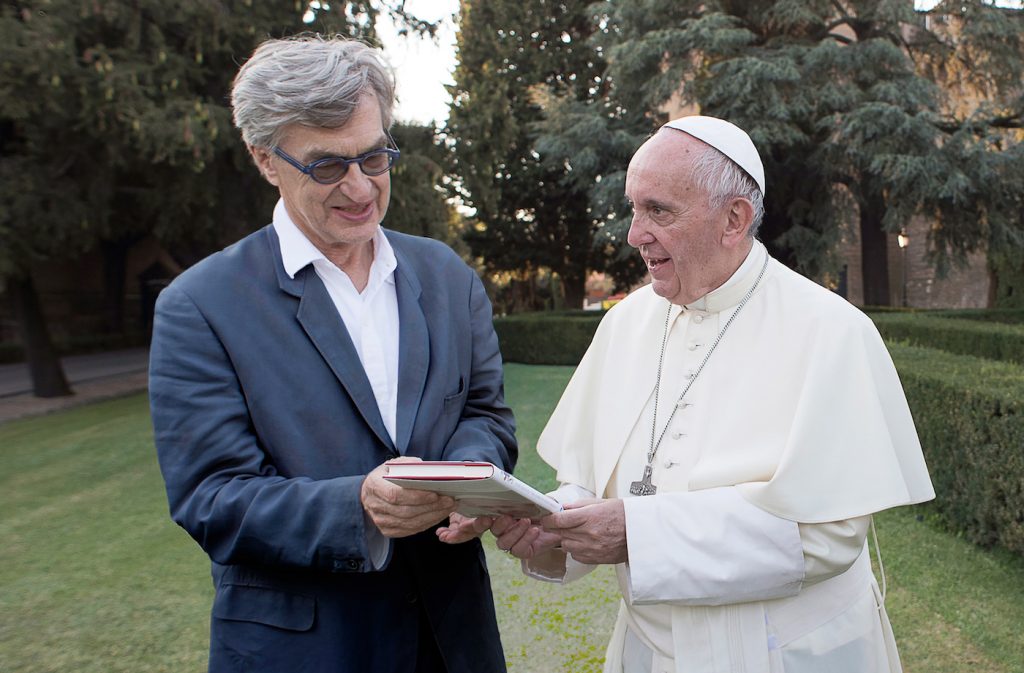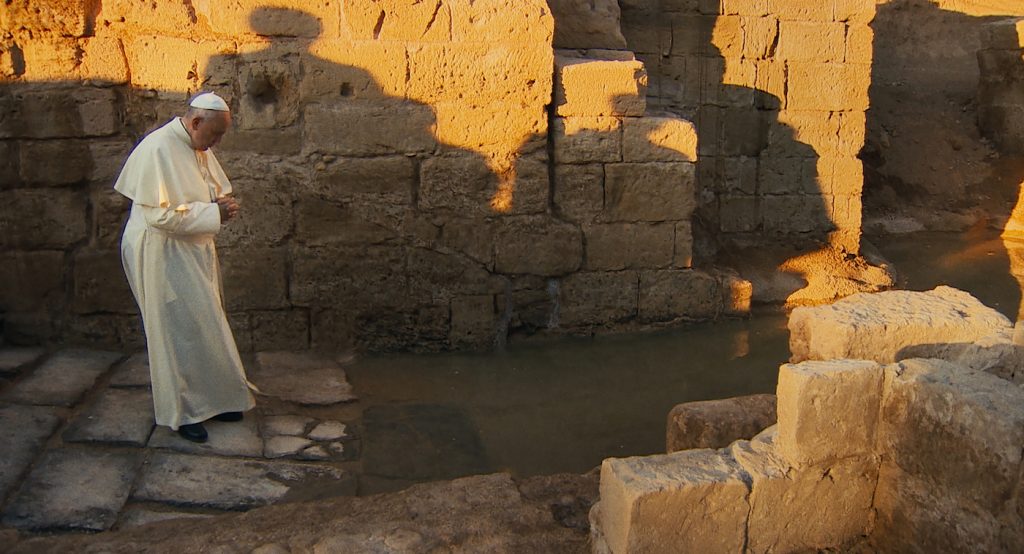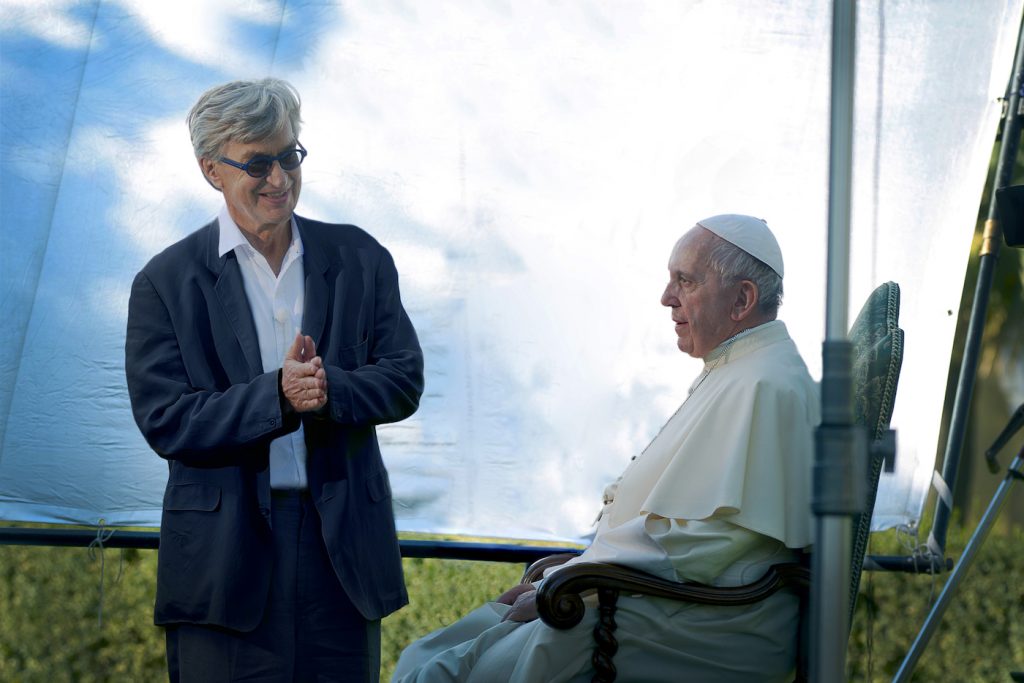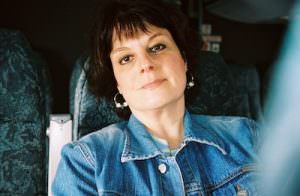Director Wim Wenders on his Unprecedented Access in Pope Francis: A Man of His Word
At 72, German-born auteur Wim Wenders defies categorization as a filmmaker. He is as much at home with Oscar-nominated documentaries that deal with the arts (1999’s music-filled Buena Vista Social Club; 2011’s Pina, about German choreographer Pina Bausch; and 2014’s The Salt of the Earth, about Brazilian photographer Sebastiao Salgado) as he is with visually striking features (1984’s road-trip Western Paris, Texas, 1987’s angelic fantasy Wings of Desire).
Wenders’ latest project takes another new turn. It was instigated in 2013 by no less than the Vatican: Pope Francis: A Man of His Word, an intimate documentary opening today that allows the rather progressive 266th pontiff of the Catholic Church to freely speak his mind directly to audiences. In between exclusive footage of his journeys around the globe, from Greek refugee camps to the floor of the U.S. Congress, the pope addresses a broad range of subjects while speaking in his native Spanish with subtitles: protecting the planet from environmental abuse, eschewing wealth, standing up for the poor and disenfranchised, his “zero tolerance” policy when it comes to the Church’s sex abuse scandals, the dangers of consumerism, social justice and even the importance of pressured parents sharing in playtime with their children.
But a picture, as they say, is worth a thousand words. And nothing beats witnessing the effect of this man’s kind smile, warm eyes and paternal embrace has upon his worldwide flock. If there is such a thing as a humble rock star, this pontiff — who chooses to live frugally, practices what he preaches, speaks with utter sincerity and even knows how to crack a joke — would be it.
The fact that Argentinean-born Francis, 80, is the first Holy Father to be a Jesuit and hail from both the Americas and the Southern Hemisphere helps him to provide a uniquely progressive stance on faith, one fully informed by the teachings of the Medieval-era saint, Francis of Assisi. Wenders filmed the pope four times over the course of two years at the Vatican, producing 10 hours of film that was edited into a 96-minute production. He discusses why he decided to take on this project, how he felt while being in the pope’s presence for so many hours and why he has a strong connection to St. Francis.
Why do you think the Vatican and, more specifically, Don Dario Viganò, thought you would be the perfect filmmaker to interact with Pope Francis as he shared his thoughts and beliefs with the world. And why did you agree?
I don’t know if he thought I’d be “the perfect filmmaker” for this, and actually, nobody would be, me included. And I don’t really know which gifts or qualifications Dario Viganò was expecting when we wrote to me. You see, even the nature of the film was entirely open at that moment. All I know is that a film with the pope was definitely not in my life’s plan. Like any other filmmaker, I took it for granted that making a film with Pope Francis would be an impossible thing to ask for. So nobody asked. I guess that’s why Dario Viganò, at the time prefect of the secretariat for communication, wrote that letter to me, inquiring if I could imagine being involved in such a film, and if I could possibly come by and talk about it. I was flabbergasted and first had to take a walk around the block. Yes, I could imagine it, no question about it. But did he have a specific film in mind? I couldn’t possibly make a commissioned TV documentary. And when we then talked, a while later, it became clear that he meant a film that I could develop on my own, that we would have to find independent financing for, that I would have privileged access to Pope Francis, and also full access to the Vatican’s archives. In the end, this should be entirely my film, an independent production, and the Vatican was not going to interfere with it. How could I resist?
In your 60 Minutes interview, they referred to you as a lapsed Catholic. How so? When did you stop being involved with the Church and why?
I grew up in a Catholic family, with a father who was a doctor in a hospital and lived his Christian faith in his total dedication to his patients. At the age of 15 or 16, I did consider becoming a priest. But rock ‘n’ roll, pinball machines and movies got in the way. In 1968 I was a socialist student. I was influenced by existentialism, and had drifted away from by Catholic belief, only to return to my Christian roots after a huge detour of thirty years or so. While I lived in America, I went to a Presbyterian church. I now consider myself an ecumenical Christian. I go to Catholic mass and to Protestant services. I have no problem with seeing the best in each.

Do you think that Pope Francis has restored the faith of others who stopped being actively involved in their religion, especially given the massive cover-up of pedophile priests preying on children? Some, however, have questioned his “zero tolerance” statement, which is included in the movie.
This long time I spent watching and listening to Pope Francis, not necessarily in person, but on a daily basis in the editing room, did have a great impact on me. His positive and optimistic energy, his total confidence in God, his humility, his courage, his kindness — they were all contagious and a huge inspiration. And they are for others, not only for Christians, I might add. I showed the film to friends who were not religious at all, and they were deeply moved. Pope Francis touches on many things that are existential and that are rarely spoken about with that clarity, but also that tenderness.
When we took up the subject of child abuse during our interviews, Pope Francis got very upset. It was the only moment during our conversation that I saw him that enraged and angry. He wasn’t pretending or “acting.” He is not an actor, but a deeply spiritual good person, who inherited a huge and heavy burden. I totally believe the sincerity of his “zero tolerance” position. The Church definitely covered up a lot. People might have doubts, as you expressed, that this is becoming completely transparent already. What do I know about the resistance Pope Francis is facing? I’m not an investigative reporter. That is a different film that demands a different approach.
Why did you include black and white re-enactments of St. Francis’ life? Why were you drawn to this particular saint?
St. Francis of Assisi is a great figure, a revolutionary not only in the history of the church. To me, already when I was a kid, he was a hero of humanity. He was the only saint I really knew something about. His poverty impressed me. He talked to the birds and all animals and called them his brothers and sisters. That really caught my imagination. When it was announced that the new pope had taken on the name of Francis, I knew what that meant: a radical solidarity with the outcast and the poor, a whole new approach to nature, and a renewed effort to instigate peace between the religions. This new pope was tackling all the great issues of our times. And when I worked on a concept for this film, I felt I needed to make a contemporary audience understand the dimension of this choice of name, the legacy that came with it. That’s why I felt the need to include these brief re-enactments.

When you talked to the pope one on one, what did you sense in him distinguishes him from other modern-day popes?
Many things distinguish him. First of all his openness and his courage to address the issues that not only the Church is facing, but also humanity as a whole. His extraordinary ability to communicate with people. His genuine love and compassion for people. His sense of humor. The sheer emotional power and conviction of his presence. His kindness. His humility. His deep belief in the equality of all people before God. The clarity and simplicity of his language. None of this is an act.

You have said that the pope was sharp enough to think of an ending for this documentary. He revealed that each day, after he says his morning prayers, he recites St. Thomas More’s Prayer for Good Humor, which begins, “Grant me, O Lord, good digestion, and also something to digest.” I also like his saying, “A smile is the flower of the heart.” How impressed were you that he knew you had to end with a bang? Did you laugh together?
I tried hard not to laugh at that moment. I didn’t want to spoil the sound, as my intention was to not appear as the interviewer, neither as a person, nor as a voice. And yes, he did surprise me with that ending. I had sort of asked for that, not with a direct question, but telling him that as he was addressing the audience so directly in the film, eye to eye with each and everybody, I wanted him to invent a way to say good-bye. And all of a sudden, I realized he was doing just that, he had just invented the ending of the film. It was also the end of our last talk.
Featured image: A man in a detention center (left) meets Pope Francis (right) in Wim Wenders’ POPE FRANCIS – A MAN OF HIS WORD, a Focus Features release.
Credit : POPE FRANCIS – A MAN OF HIS WORD (c) 2018 CTV, Ce?lestes, Solares, Neue Road Movies, Decia, PTS ART’s Factory



